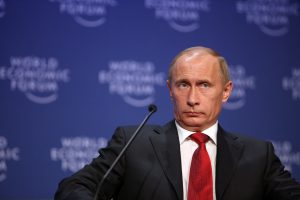Beware of summers. They are associated with holidays, a parenthesis within the stress of the political year, yet, it happened during a month of August that the forces of the Warsaw Pact had crushed the Prague Spring, that Iraq had invaded Kuwait and, happier but even more fundamental, that Solidarity was born, the first free trade union of the communist world, a world whose death bells Solidarity started to ring.
It is rare for a summer to be calm and, indeed, clouds are gathering over the summer of 2020. They darken on the other side of the Mediterranean where the Lebanese crisis broke out on top of the Syrian, Iranian and Libyan crises, the Yemen war, Israel’s political uncertainties and the Iraqi chaos. With the United States absent, a European Union without military means, Turkish adventurism, Greek nervousness and a Russian flight forward, the “Mare Nostrum” is becoming more and more the Mediterranean of dangers, and that is not all.
In the South China Sea, this essential artery of the world economy, the United States has strengthened its presence with the declared aim of putting a break on Mr Xi’s military posturing, which is increasingly likely to result in an uncontrolled escalation. Two seas, two hot, even burning hot spots, to which must be added the growing unpredictability of an American president who no longer knows how to regain control; the increasingly obvious weakening of Vladimir Putin; and the pandemic, the sword of Damocles that the world still has so much to fear in terms of economy and health.
There are so many creeping dangers and so many question marks that we could one day start using August 2020 in the meaning of “the rebirth of an international, lasting and widespread disorder”, as we have been calling the eve of a world war “August 14” for a century. What is to be feared today is not the armed clash of two powers or two major alliances, but the end of all international rules and consultations that could lead, as in ancient times, to interminable confrontations between regional powers. The return of this era was announced already by the Syrian crisis, even before the Libyan and soon afterwards the Lebanese crises did the same in their turn.
Today’s Asia is all too reminiscent of yesterday’s Europe, which had sought to define, in a perpetual war, a balance between its rival powers. Libya, Syria and Lebanon combine, in varying proportions, the Argentine-style economic collapse, the Venezuelan chaos of a regime that would rather kill a country than give up control of it, and the ethnic-religious split in the former Yugoslavia. Those three crises were harbingers of the present times. They have even largely defined them, but in the current multiplication of players on the international scene, is the European Union, at least, imposing itself as a political power?
We are not there yet, as we know.
In a way, we are even less so than ever, since Brexit has left France as the Union’s sole military power. The Union remains a power without a sword which is no longer even certain to enjoy the benefits of an American protective umbrella, and at the same time, the election of Donald Trump and the Brexit had profoundly changed the European situation even before the pandemic completely transformed it.
The idea that the Union must have the means to become a power is so well established by now that the High Representative is regularly bullied by Members of Parliament who are very alarmed by China or Turkey that they would like the European Union to show the muscles it lacks. Even without these two words being used, the idea of a political union has become obvious to everyone, just as the need of borrowing together in order to relaunch our economies no longer faces any objection.
We are arguing about the conditions for the distribution and possible repayment of this windfall of some 750 billion euro, but not, absolutely not about the principle of a recourse to a European loan. Without saying its name, let alone specifying its contours, the political union is a reality because, having acquired a single currency, the common market is moving towards joint borrowing and investment and political affirmation on the international stage.
“Perhaps”, pessimists will say, along all those who refuse to think in terms of dynamics, “but, for the time being, it is the Eurosceptics who have just won the Polish presidential election and it is by no means certain that the 27 national leaders of the Union will agree this weekend on the Commission’s recovery plan.”
Both things are true. Neither of them is pleasing, but there will be a compromise at the European Council, this time or very soon, and the Polish opposition has lost only by a hair’s breadth, while at the same time making progress, once again and considerably, in the number of votes. The National Conservatives won in Warsaw, but by so little that their victory is all the more alarming for them, because the open, modern and European Poland, that of the opposition, has won by a very large margin in the cities and among the youth, in the Poland of this century. As in Hungary, but even more clearly, the opposition is making progress in Poland and with it the idea of a united and political Europe.
So, let’s say it: this summer of 2020 is the opening of a long, very long speed race between the emergence of a new power of dialogue, of Reason, a political Europe, and a global plunge into the abyss of regional, ethnic and religious rivalries – between the Social Contract and the Every Man for Himself.



